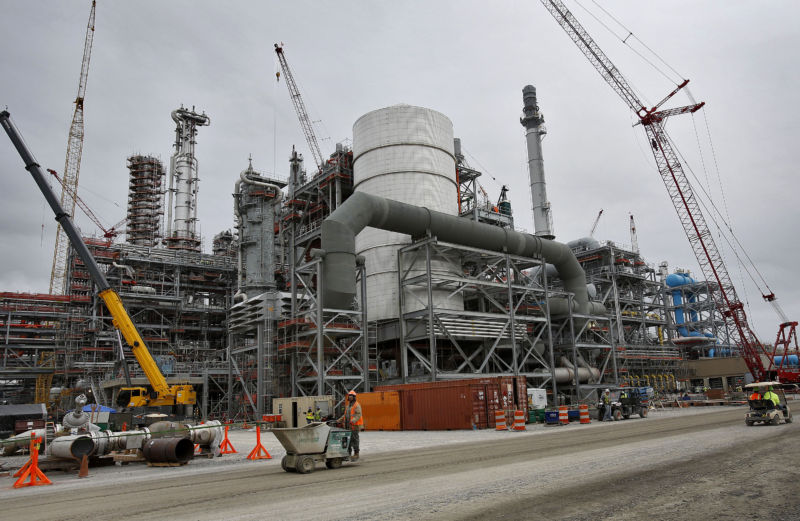
Earlier this week, the Department of Justice (DOJ) notified Southern Company that it is opening an investigation “related to the Kemper County energy facility,” according to Southern’s most recent financial statement (PDF).
The Mississippi-based facility had received $387 million in federal grants to build a state-of-the-art coal gasification and carbon-capture power plant (otherwise known as an Integrated Gasification Combined Cycle, or IGCC, plant). But in 2017, Southern’s subsidiary, Mississippi Power, decided to scrap the cutting-edge tech and only use the power plant to burn cheaper natural gas, in a major blow to the proponents of carbon capture.
Bad timing
Kemper was a complicated project. It was located near a lignite coal mine, which was intended to serve Kemper exclusively. Lignite is a low-grade coal compared to the anthracite and bituminous coal that’s found in Wyoming and Montana, so Kemper planned to synthetically transform the plentiful local coal to gas. The plant would then burn the syngas in a turbine, strip the carbon dioxide (CO2) from the power plant’s flue, and send that CO2 through a pipeline to an oilfield where it would be used for enhanced oil recovery. (That is, CO2 is forced down into an oil well to increase the pressure of the well so more oil can be recovered.)
In theory, Kemper’s complicated process was supposed to help it compete with other nearby coal plants because it could use lower-grade local coal, and the captured carbon would be used to increase oil field returns.
But in practice, Kemper proved to be an expensive boondoggle. It came online just as natural gas prices were falling to a point when burning natural gas was simply cheaper than relying on any type of coal, local or not. The plant ran more than $4 billion over budget before the Mississippi Public Service Commission made clear to the company that Kemper would need to pursue a more affordable solution for Mississippi customers.
Structural problems, as well as leaks and ash buildup, were faulted in contributing to Kemper’s failure to launch.
Stemming losses
Few details were provided in Southern’s statement about the DOJ’s investigation into the handling of the Kemper plant. The investigation is being held by the DOJ’s Civil Division, and Southern suggests it is connected with the closeout of a contract “related to the $387 million of grants received.”
The company is currently in negotiations with the Department of Energy (DOE), which supplied the grants. Southern warned that the negotiations “may require payment to the DOE for a portion of certain property that is to be retained by Mississippi Power.”
Southern Company’s financial statements also illustrated just how much money continues to trickle out of the failed IGCC experiment. Southern noted that, last year, it began to pay for mine reclamation at the adjacent lignite coal mine, “as a result of the abandonment of the Kemper IGCC.” The company planned to complete the reclamation in 2020, “with monitoring expected to continue through 2027.”
In the first quarter of 2019 alone, Southern recorded $2 million in pre-tax charges to income related to the abandonment of Kemper, with additional charges over the next year potentially running up to $10 million. Compliance and safety costs, along with property taxes for the mine and gasifier, will cost the company approximately “$11 million for the remainder of 2019 and $2 million to $6 million annually in 2020 through 2023.”
Another problem for the company is the now-abandoned CO2 pipeline that would have delivered the carbon dioxide to be used for enhanced oil recovery. Southern says it “is currently evaluating its options regarding the final disposition of the CO2 pipeline, including removal of the pipeline.”
“If Mississippi Power ultimately decides to remove the CO2 pipeline, the cost of removal could have a material impact on Southern Company’s financial statements,” Southern’s financial statement said.
https://arstechnica.com/?p=1499277

